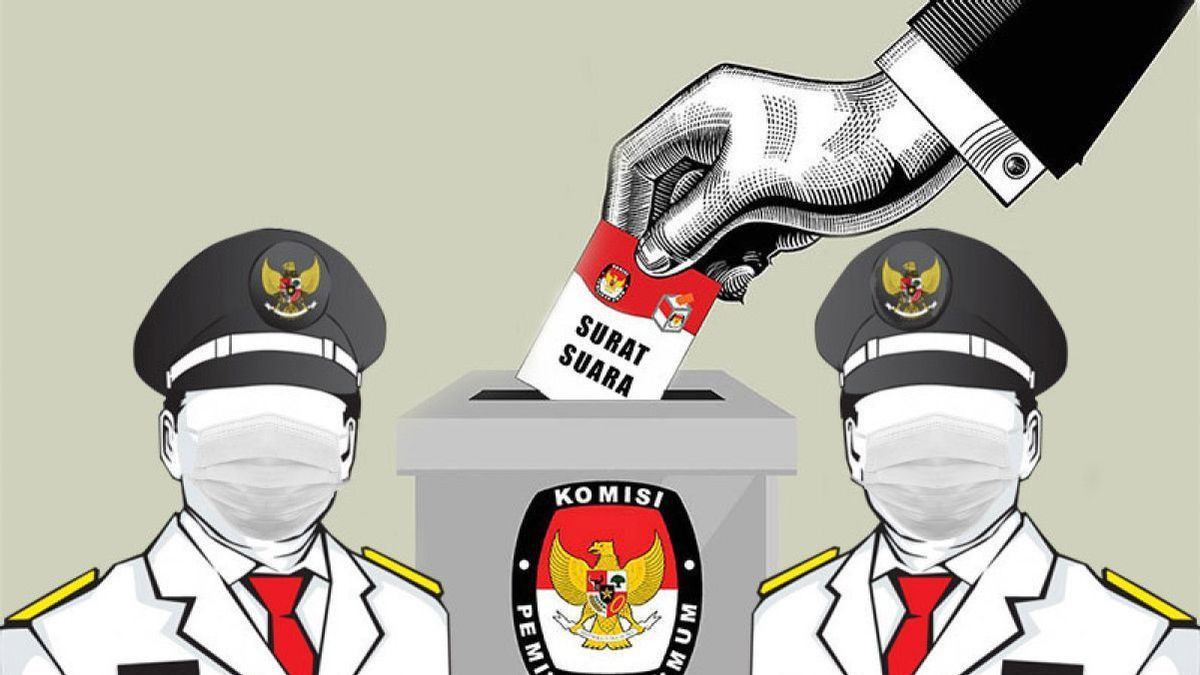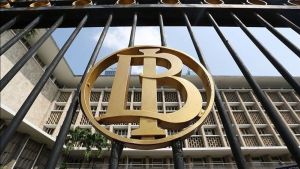YOGYAKARTA - Some time ago there was a polemic or commotion regarding the revision of the 2024 Pilkada Law. A wave of demonstrations broke out in various regions in Indonesia rejecting the DPR's agenda which was deemed to want to change the rules related to the Pilkada suddenly. So what is the content of the revision of the Pilkada Law that caused this demonstration?
Exactly a few days before the closing of registration for Pilkada participants was closed, there was political turmoil in Indonesia. People from various elements assessed that the revision of the Pilkada Law proposed by the DPR contradicted the decision of the Constitutional Court which had just been issued.
The revision of the Pilkada Law contains several crucial points that invite controversy, namely the minimum age limit for regional head candidates and changes to the nomination threshold. Let's understand further the contents of the revision of the Pilkada Law which had caused resistance from the public to demonstrations.
The House of Representatives revised Law Number 10 of 2016 concerning Regional Head Elections a day after the Constitutional Court changed the requirements for nominating the Regional Head Elections through decision number 60/PUU-XXII/2024 and number 70/PPU-XXII/2024.
On Wednesday (21/8), the DPR held a Legislation Body (Baleg) meeting from 10.00 WIB. The DPR Baleg then formed the Working Committee for the Pilkada Bill which discussed the problem inventory list (DIM) of the Pilkada Bill within 1 hour. The meeting continued with the submission of opinions from each faction starting at 15.30 WIB.
Achmad Baidowi as the chairman of the DPR Baleg meeting concluded that the revision of the Pilkada Law was then agreed upon by the majority of the party. Then Baleg's decision was made at 16.55 WIB. This process shows that the revision of the law only takes 7 hours to be agreed upon at the Baleg level.
In the draft content of the revision of the Pilkada Law, the DPR Baleg also annulled two important decisions from the Constitutional Court. Assessing the steps taken by the DPR, the public flocked to protest strongly the decision of the council members.
On the same day, members of the DPR then held a plenary meeting to ratify the bill. However, because the participants who attended did not meet the quorum, the meeting was canceled.
The following are two important or crucial points in the contents of the revision of the 2024 Pilkada Law which triggered a polemic. In this point, there are differences in decisions between the Constitutional Court and the DPR regarding the Pilkada Bill:
The Constitutional Court has changed the provisions of the nomination threshold by political parties in the Pilkada Law which requires 20 percent of DPRD seats or 25 percent of valid votes. The Constitutional Court's decision annulled the threshold rule through decision number 60/PUU-XXII/2024.
The Constitutional Court issued a new threshold requirement based on the population. With this decision, the Constitutional Court stated that parties or coalitions of election participants can register regional head candidates even though they do not have DPRD seats.
Meanwhile, in Baleg's decision, the DPR chose to maintain a threshold of 20 percent of DPRD seats or 25 percent of valid votes for parties that have DPRD seats. However, political parties that do not have seats in the DPRD are required as decided by the Constitutional Court.
In the Pilkada Law, the lowest age limit for governor candidates is 30 years and the regent/mayor candidate is 25 years. The Constitutional Court's decision number 70/PPU-XXII/2024 still regulates the minimum age limit for the cagub, namely 30 years and the candidate for mayor/regent is 25 years when determined by the KPU. So the age limit does not apply when inaugurated.
The DPR Baleg's decision has differences in the provisions of the age limit for regional leaders. Actually, the lowest age limit is still the same, namely for cagub it is 30 years and the mayor/regent candidate is 25 years. However, the age limit applies when officially inaugurated, while the Constitutional Court's decision is regulated when determined by the KPU as a Pilkada participant.
SEE ALSO:
That is the content of the revision of the 2024 Pilkada Law which was proposed by the DPR and caused a commotion in the community. The points regarding the nomination threshold and the age limit for the Pilkada participants are considered not in accordance with the provisions in the Constitutional Court's decision. Also read the KPU giving an explanation if the empty box wins in the Pilkada.
Stay up to date with the latest domestic and other overseas news on VOI. We present the latest and updated information nationally and internationally.
The English, Chinese, Japanese, Arabic, and French versions are automatically generated by the AI. So there may still be inaccuracies in translating, please always see Indonesian as our main language. (system supported by DigitalSiber.id)
















